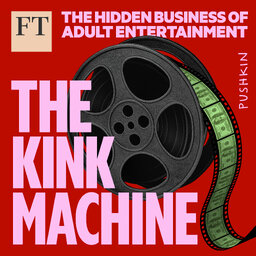A New Media Business Model
Description:
Jason Feifer, editor in chief of Entrepreneur magazine, discusses the complicated role of revenue in publishing, especially in the world of business media. He also gives a surprisingly frank look at how Entrepreneur Magazine leans into non traditional practices to balance reader’ interest with the magazine’s revenue model.
Learn more about your ad-choices at https://www.iheartpodcastnetwork.com
In 1 playlist(s)
Deep Background with Noah Feldman
Behind every news headline, there’s another, deeper story. It’s a story about power. In Deep Backgro…Social links
Follow podcast
Recent clips

From The Kink Machine: The Hidden Business of Pleasure
31:30

The Future of COVID-19 with Marc Lipsitch
37:05

How One Bank Shaped American Capitalism
32:06
 Deep Background with Noah Feldman
Deep Background with Noah Feldman